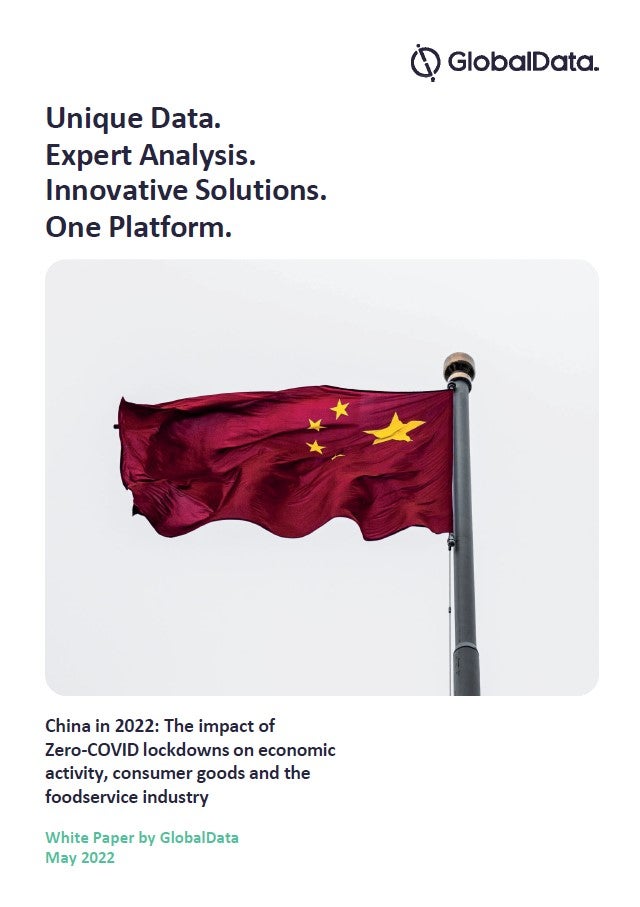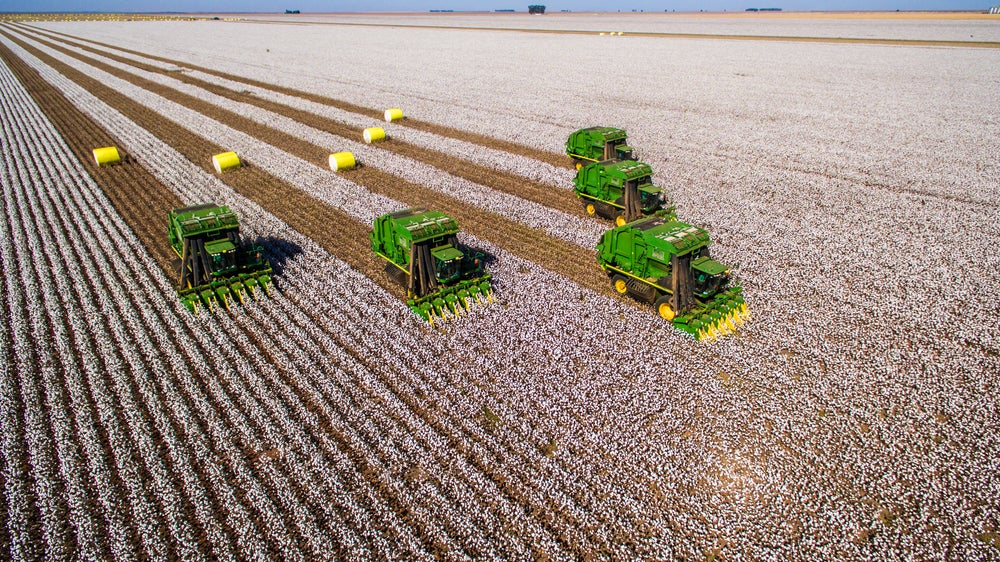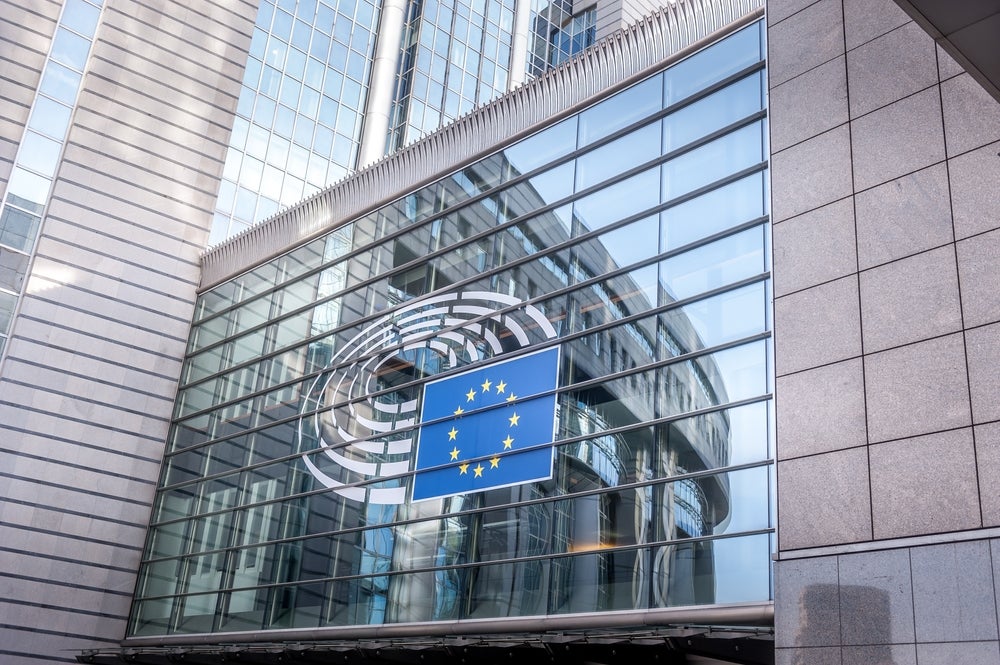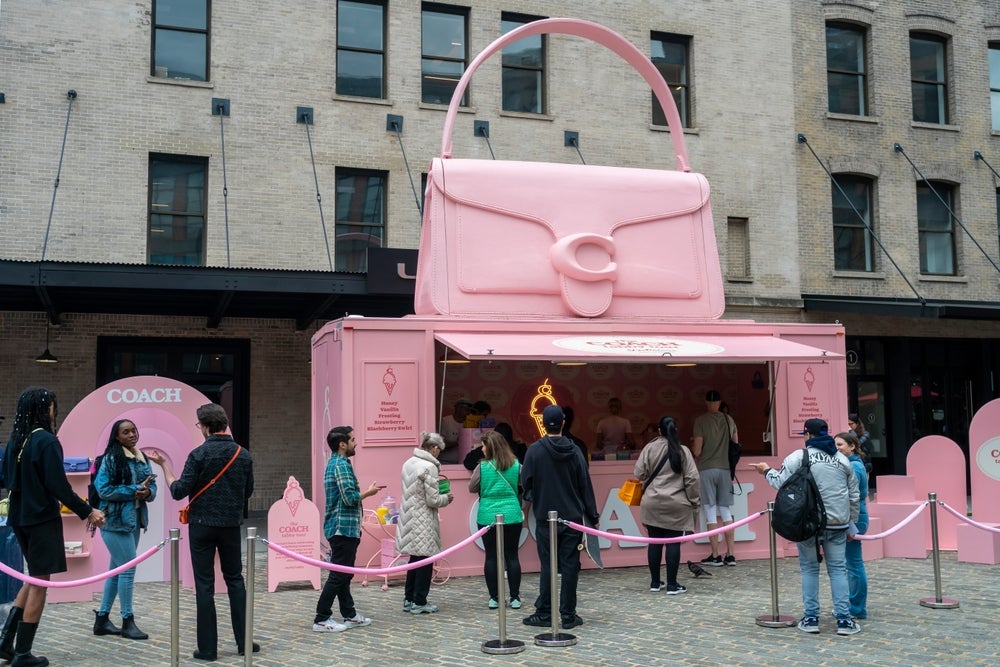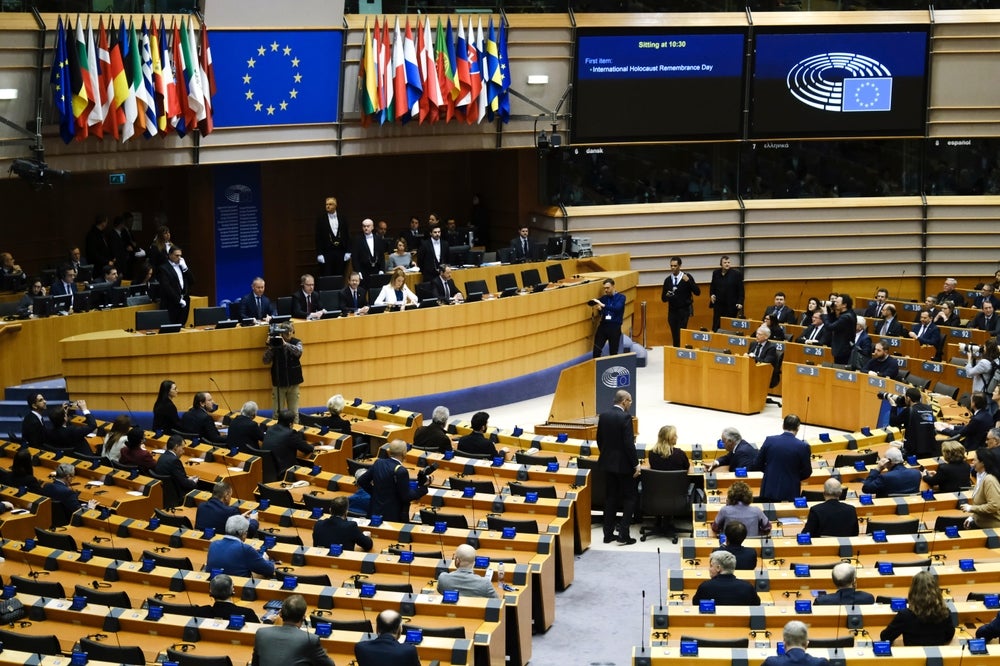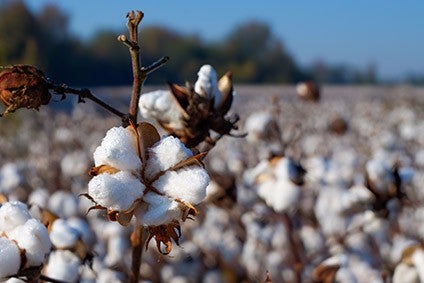
US companies have been banned from trading or engaging with the Xinjiang Production and Construction Corporation (XPCC) — a government entity that has interests in cotton farming and sales — after the organisation was placed on a Specially Designated Nationals List.
The US Department of the Treasury’s Office of Foreign Assets Control (OFAC) placed XPCC on the list on Friday (31 July), in a move that means all US companies are banned from engaging with the organisation without a license issued by OFAC.
OFAC said XPCC was sanctioned in connection with serious rights abuses against ethnic minorities in the Xinjiang Uyghur Autonomous Region (XUAR).
OFAC may consider any transaction by a covered person that directly or indirectly benefits XPCC as a violation of these sanctions, including apparel-related transactions made anywhere in the world that contain XPCC cotton, according to international trade law firm Sandler, Travis & Rosenberg (ST&R). A general license is available through 30 September for companies to wind down their supply chains to exclude XPCC.
“As previously stated, the United States is committed to using the full breadth of its financial powers to hold human rights abusers accountable in Xinjiang and across the world,” said Treasury secretary Steven Mnuchin.
How well do you really know your competitors?
Access the most comprehensive Company Profiles on the market, powered by GlobalData. Save hours of research. Gain competitive edge.

Thank you!
Your download email will arrive shortly
Not ready to buy yet? Download a free sample
We are confident about the unique quality of our Company Profiles. However, we want you to make the most beneficial decision for your business, so we offer a free sample that you can download by submitting the below form
By GlobalDataSee Also:
XPCC is said to engage in cotton farming and sales in XUAR for certain types of cotton. China accounts for 20% of all global cotton and XUAR accounting for 80% of China’s cotton, ST&R said. This production represents 50% of global spinning capacity.
XPCC reportedly produces almost 30% of China’s cotton. It could not be reached at time of press. XPCC Cotton & Linen Company, a subsidiary of XPCC, was dropped by the BCI in October last year, with the BCI stating a reorganisation of the company had led to “challenges in implementing the Better Cotton Standard System in line with our requirements related to Principle 7 – Internal Management Systems.”
In March, the Better Cotton Initiative suspended its activities in Xinjiang on the back of concerns over the prevalence of labour abuses in the region.
The same month, a report from the Australian Strategic Policy Institute (ASPI) alleged more than 80,000 Uyghurs were transferred out of Xinjiang between 2017-19 to work in factories including ones making garments and footwear. Its report named several brands including adidas, L Brands, Abercrombie & Fitch, H&M and VF Corp.
Adidas told just-style it explicitly instructed its suppliers to stop sourcing products and yarn from the region when the allegations against one of the supplier factories were made in 2019. A&F said the same. VF Corp said neither it or its brands had a relationship with the supplier named, while L Brands and H&M said they both prohibited forced labour and had due diligence processes in place to identify and address supply chain risks.
The OFAC move is the latest in the US government’s actions in an ongoing effort to deter human rights abuses in the Xinjiang region.
Last month, the US Department of Homeland Security (DHS) said it would take increased enforcement action against US firms that continue to trade or conduct business in Xinjiang.
The announcement followed a decision by US President Donald Trump in June to issue sanctions over the repression of China’s Uyghurs. The Uyghur Human Rights Policy Act of 2020, which was signed into law “condemns gross human rights violations of specified ethnic Muslim minority groups in the Xinjiang region in China and other purposes, including the specified authority to impose sanctions on certain foreign persons.”
Meanwhile, the US Department of Commerce’s Bureau of Industry and Security recently published a list of 11 Chinese entities allegedly implicated in human rights abuses in Xinjiang, three of which are textile and garment factories. One of these was Hong-Kong headquartered Esquel Group which defended its position, adding it is an “ethical company that pays and treats its employees well and it does not and never will use forced labour.”

